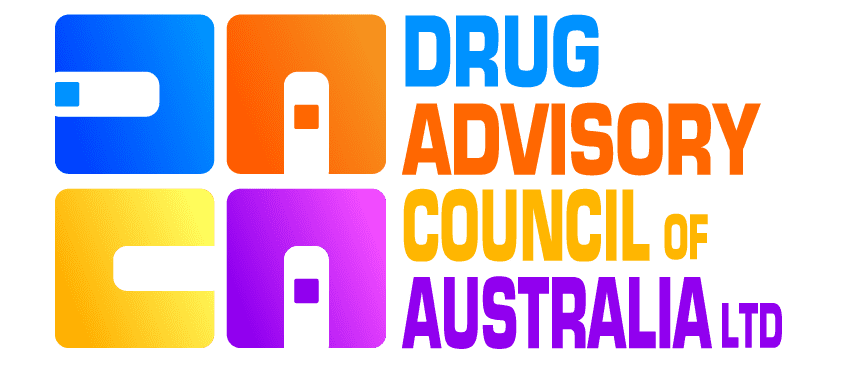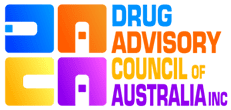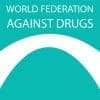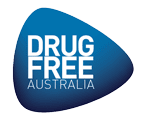DRUG ADVISORY COUNCIL OF AUSTRALIA CALLS FOR URGENT ACTION ON PUBLIC FUNDING OF ILLEGAL DRUGS.
A spokesperson for DACA today questioned the legality of using the internet to raise funds to manufacture and supply dangerous and illegal drugs. According the new reports a Norwegian advocacy group EmmaSofia is planning to use ‘crowdfunding’ to raise $1 million to synthesize psychedelics and MDMA purportedly for medical use with the aim that researchers worldwide would have easier access to them (1). DACA said doubts about the legitimacy of the raising of funds for research were apparent from the statements of those associated with EmmaSofia.
DACA said “Far from being used for research it appears that the aim of this group is to supply an illegal drug to end-users relying on the gullibility of people for donations who are a part of the drug culture by suggesting these drugs are safe and could be made available for recreational use for free.” EmmaSofia are quoted as saying: “Eventually, we should be able to make kilos of MDMA and psilocybin” And yet in the same article it was reported by another research group that “We are still working with the first kilo of MDMA that was first synthesized in 1985,” It begs the question as to who and where “kilos” of the drug would be used for ‘research’.
Further clues as to the illegitimacy of the project came from the claim that “A licensed doctor anywhere in the world can then go to his or her pharmacy, and order it from us,”. This implies that doctors would be able to prescribe it for medical problems, rather than for research.
Even more disturbing is their statement on the basis of some social research that: “there is no scientific reason for psychedelics to be illegal.” and that “EmmaSofia is working to expand access to quality-controlled MDMA and psychedelics world-wide, for medical, personal development, spiritual practice, fun and play.” (1). These claims are directly contrary to the main body of research knowledge. Mayer in a review of the safety and efficacy of MDMA as a treatment for various disorders emphasised that “MDMA was not a safe medical treatment due to lasting neurotoxic and cognition impairing effects in humans” (2), while Parrott concluded that: “because of MDMA’s demonstrated potential to cause lasting harm in humans (e.g., serotonergic neurotoxicity and persistent memory impairment), “considerably more research must be performed” on its efficacy as a treatment” (3). In the case of psilocybin medical researchers have emphasised that very small ‘sub-hallucinogenic’ and strictly controlled does were ever used.
Crowdfunding legitimately reaches out to those with a shared interest to gain needed funding for a worthwhile product or cause. In the case of university crowdfunding, most donations go to a specific research fund or cause with donations from supporters of the cause or the university. Typically the Terms and Conditions of Crowdfunding websites state that “Users may not use the Service to process Payment Transactions in connection with an illegal transaction or the sale or exchange of any illegal or prohibited goods or services “.
DACA Recommendations:
DACA concluded: “In the case of EmmaSofia and other such groups there is clear evidence that the use of the web to raise public funds is not only illegitimate and is a distortion of its intended purpose, but is probably illegal”. DACA called on Governments and the owners of public NGO fund-raising websites to outlaw these sorts of campaigns as a matter of some urgency.
1. Roes, T . “Norwegian Researchers Are Crowdfunding to Make Psychedelics and MDMA Free for Global Medical Use”, Vice News. March, 12, 2015
2. Meyer JS (2013). “3,4-methylenedioxymethamphetamine (MDMA): current perspectives”. Subst Abuse Rehabil 4: 83–99. doi:10.2147/SAR.S37258.
3. Parrott AC (2014). “The potential dangers of using MDMA for psychotherapy”. J Psychoactive Drugs 46 (1): 37–43. doi:10.1080/02791072.2014.873690.




